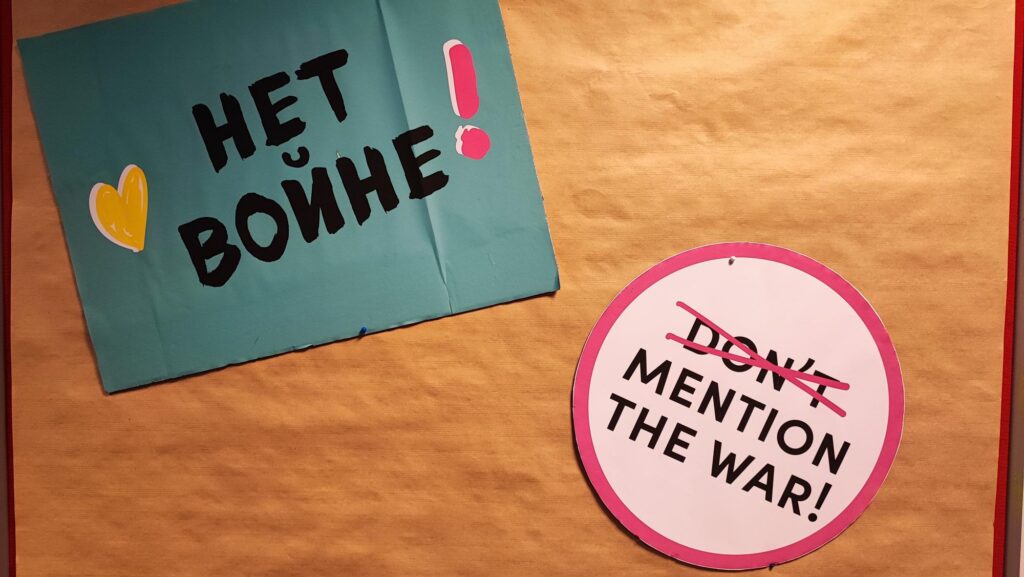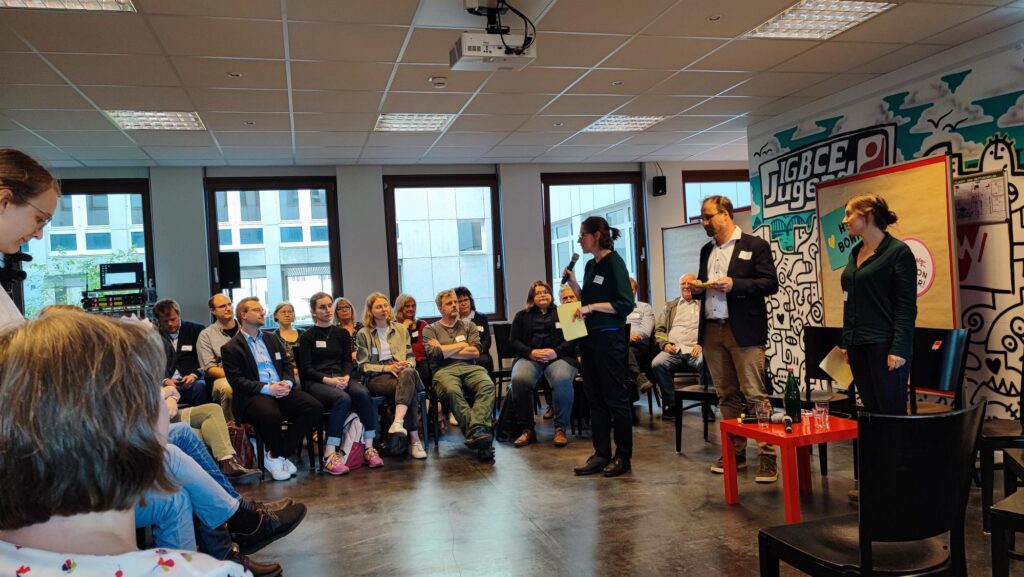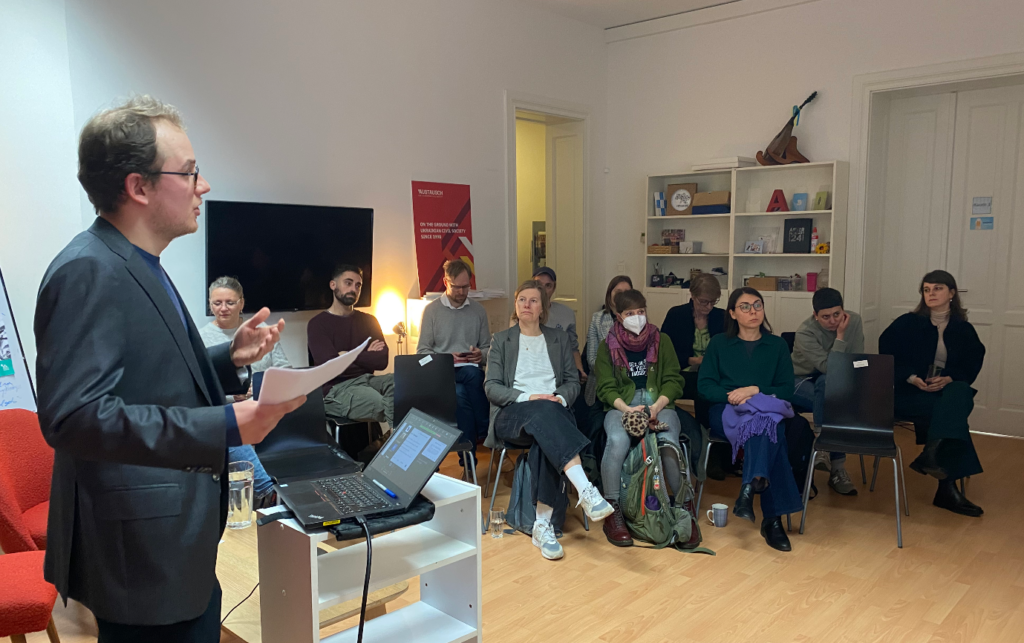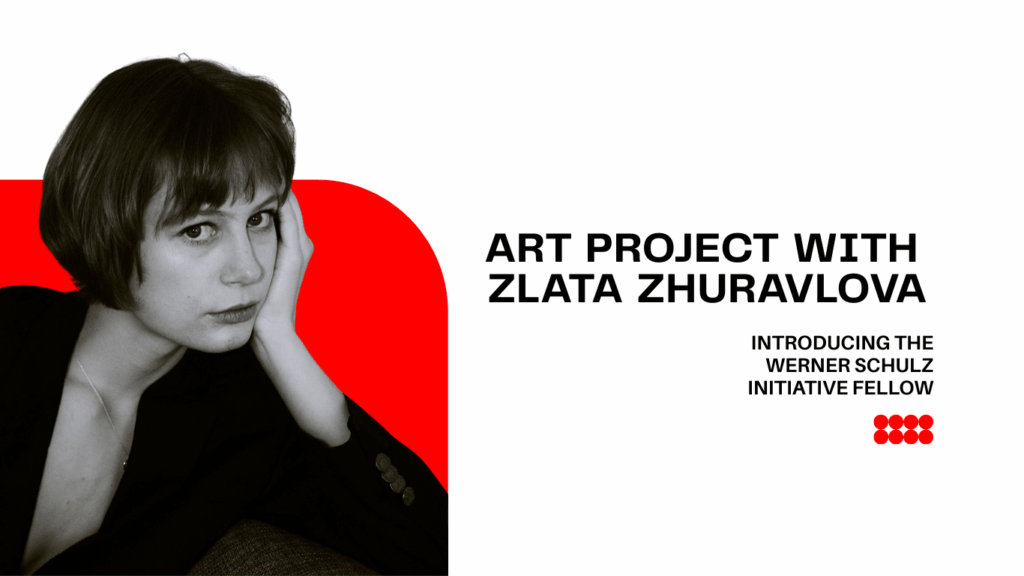Nevertheless. Nevertheless?
About the impossible in unspeakable times.
Today, something was discussed in Hamburg that is practically impossible nowadays: German-Russian youth exchange. Is it, therefore, already as unbearable as the behavior of the Russian political leadership? And how can discussions about the harsh reality – war and dictatorship – take place within this context?
The main organizer of the discussion “(Don’t) Mention the War!”, the Foundation for German-Russian Youth Exchange (SDRJA), which has actively promoted this format since 2006, can currently only offer individual actions for teachers, language learners, and Russian exiled youth in Germany, occasional Baltic Sea sailing trips, and other attempts at bridge-building to Poland and Ukraine.” Their future is uncertain. The other participants – MitOst and Arbeit&Leben Hamburg as co-organizers – as well as the speakers, including Stefan Melle from Austausch e.V., have organized such youth exchanges in various approaches. However, beyond important personal encounters, especially on the part of politics, it was often accompanied by too much hope and glossing over. Benjamin Bidder, economic editor at Der Spiegel and formerly its Moscow correspondent, pointed out that many in Russian society support the war. Where consensus is impossible, it generates either conflict or silence – the latter prevailed until 2022, now more so distancing and withdrawal, confirmed with regret by Marija Ruzhitskaya (DRJUG e.V.).
Today, two days later, another step followed in the general destruction from the Russian side: Hundreds of so-called ‘intermediaries’ – teachers, lecturers, employees of Goethe Institutes, etc. from the German side are being expelled. This supports the pessimistic forecast of Stefan Melle, Austausch e.V.: “We are moving towards an aggressive, quasi-Soviet system, which erects high barriers and can persist for a long time, perhaps decades, with or without Putin.” More likely than a sudden democratic awakening is a protracted, violent dictatorship, in which any encounter is undermined by manic state control and personal security risks for those involved. If younger people from both countries are still to get to know each other – which remains necessary – then this should happen in other countries, preferably in multilateral exchanges where origin is less important than shared experience. Indeed, one cannot ignore the “elephant in the room” – the war. It must also be discussed, and this discussion must be carefully moderated.
In the face of the brutal attacks on Ukraine, traditional peace education also reaches its limits, admits Regina Heller from the Hamburg Institute for Peace Research and Security Policy. She understands that Ukraine has a right to self-defense – peace work is thus also about restoring common rules. Talking about the equality of nations, about internal and external colonial history and decolonization, as well as about the eventual reckoning with war crimes, individual guilt, and collective responsibility, will inevitably become necessary. And in this regard, the Federal Republic of Germany, with its own painstaking, decades-long history of coming to terms with the crimes of the Nazi era and World War II, has something to share that is now of great interest to many in Russian society. Even though it’s exhausting and often delicate to talk openly about it.
Moreover, there are still numerous niches and ruptures in both societies, comparable but not identical – of which there was much to see in Hamburg, in and around the venue of Arbeit&Leben: the stickers and slogans of the union youth and Young Socialists, the methadone provision for addicts right in the middle of the meadow, the milieus and their encounters at the main station. Meeting each other and telling about real life experiences remains of great value for everyone. In the long run, despite everything, young people from Russia must also be involved again – and they will have many special tasks to tackle in a society that has allowed war and countless crimes. And they will also encounter the terrible experiences and traumas, the rejection and anger of young Ukrainians. And of many others in Europe. Indeed, unavoidable and necessary. Absolutely, fostering mutual understanding is crucial for overcoming war and imperial delusions. The guiding principle will once again be “Never again war!” Exactly: Peace. And International Law.





